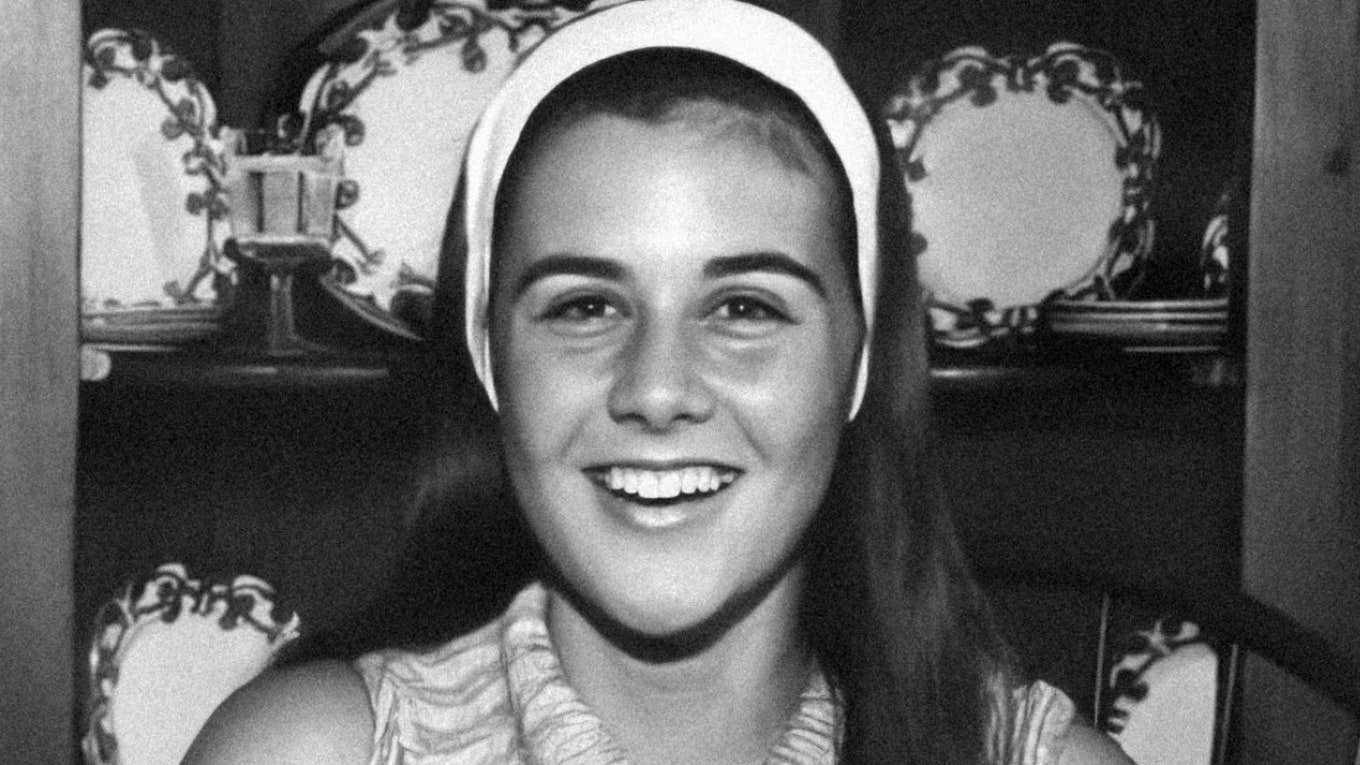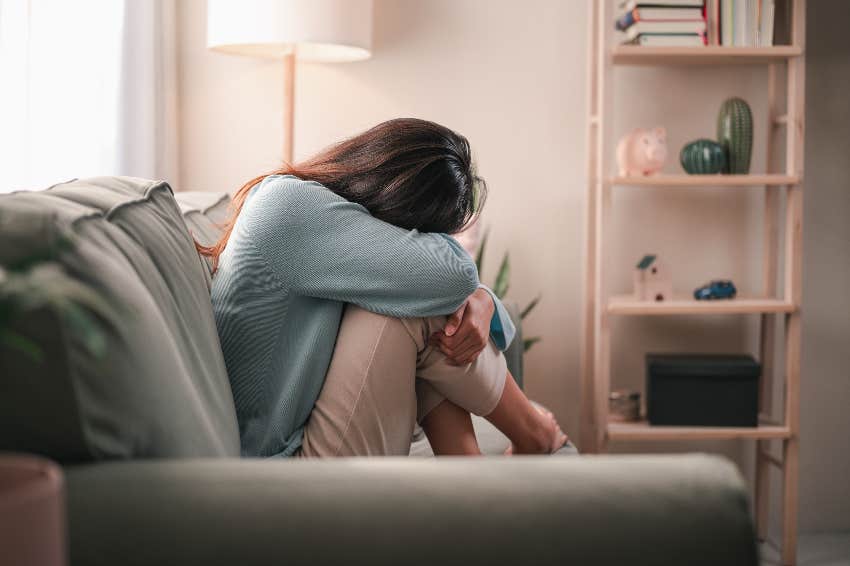8 Signs You Have Eldest Daughter Syndrome, According To Family Therapist
The heavy burden of being the oldest daughter.
 Florida Memory | Unsplash
Florida Memory | Unsplash To be the oldest daughter dually serves as both a gift and a curse. While being the first-born daughter can be rewarding in the wisdom and maturity it brings, the experience can also bring intense stress and anxiety that will follow you your whole life.
Eldest daughters tend to take on way more than they can handle from a young age, causing them to grow up too fast and neglect their own needs.
Because of its prevalence and relatability, first-born daughters have coined the experience as "eldest daughter syndrome" (EDS).
While it is not an official mental health diagnosis, EDS is a family role many first-born daughters subconsciously take on. Therapist, Kati Morton, took to TikTok to describe the phenomenon and share the unsuspecting signs you might struggle with it.
Here are signs you have eldest daughter syndrome, according to family therapist:
1. You have an intense feeling of responsibility
Parents tend to place much higher expectations on their firstborn children than their younger children. They believe the oldest child is meant to set a positive example for their younger siblings, and additionally take on more emotional and domestic responsibilities.
Striving to be a “perfect parent” with their first child, many firstborn kids will inherit and internalize the perfectionist tendencies they were raised with. Because of this pressure to be a good role model, the oldest daughter grows up believing she has countless responsibilities, even when certain circumstances are out of her control.
2. You are an overachiever
 Perfect Wave / Shutterstock
Perfect Wave / Shutterstock
With such high standards and expectations placed on you from a young age, you feel the need to overachieve in every area of your life. This can lead to constant feelings of perfectionism, not being good enough, and a fear of failure.
You’re likely hard on yourself for making mistakes and you struggle to show yourself grace for being human and imperfect.
3. You worry a lot and probably have anxiety
In many family dynamics, the eldest daughter is exposed to the challenges and struggles her parents face, causing her to feel responsible for taking on extra tasks in her family.
She often feels like the glue that holds everyone together, but this inherent role can cause her to develop anxiety. She places her family’s needs and well-being above her own. “Eldest daughter mediates family conflict as she feels it’s her job to keep the peace and ensure everyone is okay, even if she isn’t,” said Morton.
4. You struggle with people-pleasing behavior
Because you tend to drop everything at your family’s beck and call, you may now struggle with feeling the need to please everyone around you for the sake of avoiding conflict, maintaining peace, and even seeking validation, at the expense of your comfort and desires.
People-pleasing has been associated with a trauma response, known as "fawning," and this behavior is rooted in the fear of disappointing others. But without the ability to demonstrate assertiveness and respect for your boundaries, you’ll come across many individuals who will take advantage of your giving nature, and this will damage your relationship with yourself and others.
5. You have a hard time placing and upholding boundaries
The oldest daughter typically isn't taught the importance of setting boundaries, likely due to her tendency to always be there for her parents and siblings, no matter what. This behavior, however, is a result of her not being taught to say no or have her own space.
You grew up with the notion that as the eldest daughter, you must sacrifice your personal space and needs for the betterment of your family, but this habit will lead to a life-long struggle to understand the importance of having boundaries.
6. You resent your siblings and family
This struggle is one that some may not explicitly admit, but subconsciously feel. Once you adopt awareness of the struggles you faced as the firstborn daughter, you’ll likely feel resentful for not having the space to cultivate your own identity outside of your family role.
“Because the pressure, responsibility, and household labor isn't something we got to decide to do, or not do, we can start to become angry with the people around us who benefit from our intense workload,” Morton explained.
When your family continues to come to you about their problems, you’ll feel the need to "scream," as you feel suffocated by everyone’s needs.
“The burden of premature responsibility can lead to feelings of unfairness and an unmet need for a typical childhood,” Morton added. It doesn’t help that you’ll notice many of your peers live life with a carefree spirit, while you struggle with internalized pressures and anxieties.
7. You struggle with feelings of guilt
 Day Of Victory Studio / Shutterstock
Day Of Victory Studio / Shutterstock
With this resentment also comes a sense of guilt: guilt for feeling resentful, guilt for missing out on chances to be there for your family when they needed you, and guilt for not being able to resolve the problems your other loved ones experience.
Once you move away from home and evolve into adulthood, as you learn to prioritize yourself and your needs, you will feel guilty, and even selfish, for finally putting yourself first. This is a subconscious response to finding fulfillment solely in your giving nature with others.
You likely struggle with guilt for not being there for your family the way you used to be, regardless of whether they imply this or not.
When your family experiences challenges without you, you’ll feel responsible for not being there to mediate the conflict. As your siblings grow older and face struggles on their own, which may or may not result from no longer having their older sister around, you’ll feel guilty for missing out on these experiences. It’s because of these complicated feelings that come up that some eldest daughters will choose to stay close to home so they can continue to cater to their family's needs.
While the guilt will always come up, know that changes are meant to occur so that your parents and younger siblings can learn to flourish without you. Every child eventually has to leave the nest, and while the oldest leaving stings the most, you are not responsible for resolving every challenge your family faces.
8. You have a difficult time in your adult relationships
Because of all the unresolved struggles you begin to experience in adulthood, you’ll suffer in your relationships with others.
“Many of us still act overly responsible and do too much, even without someone telling us to, and that's because it’s all we know,” Morton expressed. “It’s how we learn to feel valuable and what we think our role in life is.”
Not everyone is immediately aware of the struggles they experience as the eldest daughter, and these unresolved frustrations and anger will show up in their relationships. You’ll likely invest a lot of your time, energy, and care into your partners and friends, and when this energy feels unreciprocated, you’ll feel resentful and unworthy.
While your friends and peers can let loose and have fun, you feel overly responsible for making sure everyone is safe and happy, ignoring your wants and needs. Give yourself grace for being born into a pressuring role you never asked for, and know you aren’t alone in your struggles.
Find community in those who are also dealing with similar struggles as the oldest daughter, and be proud of yourself for being so strong and selfless, as others thrive in your presence.
Know that you carry an infectious and loving light within you, and the right people will align with your path. Be patient with yourself as you unlearn the harmful patterns rooted in your past, and continue to “fight to sit with the discomfort of doing things differently.”
Remember that when you can’t show up for yourself, you can’t show up for others in a way that is respectful and mindful of your needs.
As the oldest daughter myself, I love my parents and siblings beyond compare, and even with the awareness I have now, I will continue to drop everything to be there for them in a time of need.
I, among many other women, can relate to each of these signs of EDS, and while it is a continuous and challenging journey of growth, I am discovering myself and learning to respect my needs and boundaries, and you can, too.
Francesca Duarte is a former writer for YourTango's news and entertainment team based in Orlando, FL. She covers lifestyle, human-interest, and spirituality topics.
